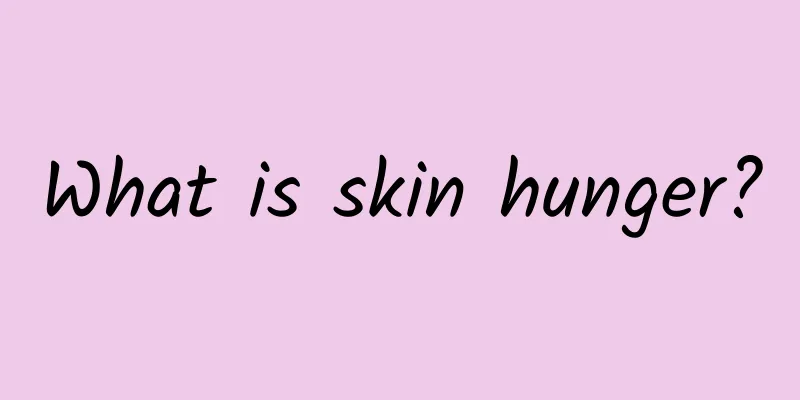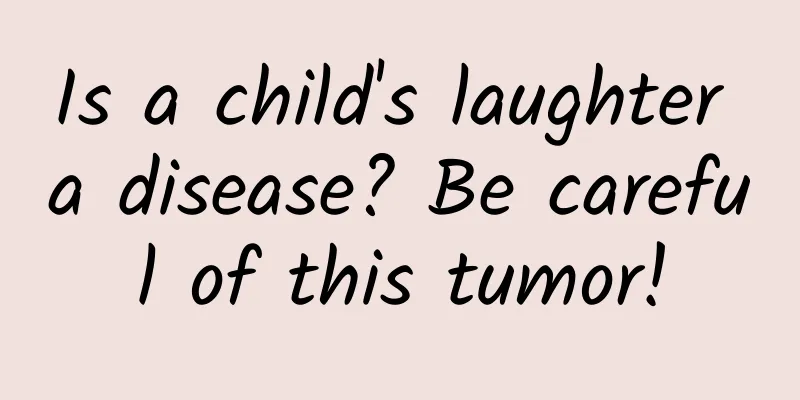What is skin hunger?

|
Leviathan Press: In existing studies, if children lack physical touch during their developmental stage, they may suffer physical and cognitive damage, which in turn leads to an increased chance of aversion to physical touch in adulthood. It can be seen that whether it is the rhesus monkey isolation experiment mentioned in the article or us as Homo sapiens, the need for physical touch is essential. This is not only a psychological issue, but also a phenomenon that can be explained by neurology. So, hugging your partner more often, or petting your cat or dog more often, will also help you a lot. Alice, a 31-year-old business executive living in London, has been violating the COVID-19 lockdown policy. "I didn't want to tell you this," she said, lowering her voice. So how did she break it? Alice, who lives alone, walks to the end of the garden every week to meet her best friend Lucy. There, Lucy would hug her furtively, as if she were doing a drug deal on the street. Alice couldn't bear to let her go. She said: "Only hugs can make me feel a little happier and pretend that everything is okay." Apart from Lucy's hug, Alice, who has been in quarantine since March 15, 2020, has not been touched by anyone else. A week later, the local government officially issued a stay-at-home order. "The quarantine period was so hard, it made me realize that I am a hugger, and I really want to hug, but I dare not tell other friends, after all, it's embarrassing to talk about it," Alice said. She apologized for her sneaky behavior, "but I am very grateful to Lucy, her hug encouraged me." Alice actually has "skin hunger," a neurological phenomenon that has been exacerbated by the COVID-19 pandemic. Skin hunger reflects the human physiological need to be touched, which is why babies in neonatal intensive care units lie on their parents' bare chests, and why prisoners in solitary confinement often crave contact with others as much as they crave freedom. Tiffany Field of the University of Miami's Touch Institute explains: "When you touch the skin, it stimulates pressure sensors under the skin, which in turn send messages to the vagus nerve (a nerve in the brain). As the vagus nerve becomes more active, the nervous system slows down, heart rate and blood pressure drop, brain waves show that the individual is in a state of relaxation, and levels of stress hormones such as cortisol also drop." Touch also releases oxytocin (a hormone also released during sex and childbirth), which bonds us together. In other words, human touch is biologically beneficial. Being touched makes people feel calmer, happier, and more rational. Without touch, humans deteriorate both physically and mentally. “The literature shows that a lack of touch can have serious consequences for our health,” says Alberto Gallace, a neurologist at the University of Milano-Bicocca. Humans are naturally social animals; studies have shown that depriving monkeys of physical contact can lead to adverse consequences. The human brain and nervous system are programmed to perceive touch as a pleasurable experience. "Nature has programmed this sensory pattern to promote human happiness in a social environment. This is only true for social animals, because they need to stay together to improve the survival of the group." Harry Harlow, an American psychologist, conducted an experiment on the isolation of rhesus monkeys: The experiment isolated young rhesus monkeys for 24 months. During this period, there were two "mothers" - the wire mother and the flannel mother. The wire mother had a milk bottle hanging on her chest, but the flannel mother did not. Although the baby monkeys could drink milk when they were with the wire mother, they would rather not drink milk and stay with the flannel mother. Harlow concluded that physical contact has a greater impact on the development of baby monkeys than breastfeeding - they only go to the wire mother when they need food, and spend most of the rest of the time snuggling with the flannel mother. Although this experiment is cruel, it also reveals the importance of physical contact for mammals. © ResearchGate Before the pandemic, many developed countries were already at risk of becoming “no-touch zones,” with schools and public institutions generally implementing no-touch policies for protection and legal reasons. Field’s Touch Institute is currently investigating how often people touch each other while waiting for their flights at airports around the world (the study is currently on hold). “We looked at more than 4,000 interactions, and the data showed that, at least in public, people are spending the vast majority of their time on their phones and barely touching each other,” Field said. As advice to maintain social distance gains acceptance around the world, people living alone have spent months without human contact, which is ironic because thirst weakens our immune systems, making us more susceptible to Covid-19. “I’m very concerned that touch is needed right now,” Field said. Touch helps boost immune function and lowers cortisol levels. When cortisol levels are too high, the immune system becomes exhausted: Cortisol kills natural killer cells (a type of white blood cell that helps humans kill viruses). Field told me that there is evidence that touch can increase natural killer cells in people with AIDS and cancer. Given that the coronavirus pandemic has heightened levels of stress and anxiety, Gallese is concerned about the mental health of those who have been isolated for a long time. "Touch is comforting. When we are in danger or anxious, being touched helps relieve negative emotions. Lack of contact increases stress," he said. He further explained: Studies have shown that people can complete tasks better if they are patted on the back first. "Patting on the back is a form of comforting that can be traced back to the touch of caregivers in childhood." Field’s team has been conducting research during lockdown: of the 100 people surveyed, 26% rated themselves as being very craving touch, while 16% felt it was OK. 97% said they had trouble sleeping. “When you touch the skin, serotonin increases,” Field explains. “When serotonin levels are low, people are more susceptible to insomnia, anxiety and depression. If people are touched before going to bed, they are more likely to fall into deep sleep, which is important because substance P is released during deep sleep (a neurotransmitter that affects pain perception, stress levels and mood).” People don't realize how much they rely on human contact until they lose it. Sarah, a 40-year-old human resources specialist at the University of Reading, said: "Normally, I prefer to live alone. I like to have my own independent space." I discovered Sarah on social media when her updates became increasingly depressing. On March 23, Sarah wrote on Facebook: "When the lockdown is over, I will hug everyone tightly. I will try my best to be gentle and not hurt you, but I can't guarantee it." On April 12, she wrote again: "I will hug everyone when it's all over." A few days later, she posted an even more depressing update. On March 18, she wrote on Twitter: "I'm very sad today. I feel desperate when I think about living alone for several months and not being able to hug others." For Sarah, the Covid-induced thirst has been grief-stricken. “I feel abandoned. I’m really moody, really sad, really stressed and really down,” she says. The last time she was touched was on March 15. A friend who had been staying at her house gave her a hug when he left. Since then, Sarah has not touched any living creatures, save for the neighbourhood cat, which occasionally wanders into her garden for her to pet, and the geese she feeds in a nearby park. Alice has found herself cuddling her pet cat much more than usual. “I don’t usually pet cats because they hate it, but now I always want to give them a tight hug.” © GIFCOP Sarah and Alice stumbled upon an effective way to quench their thirst by petting animals. "Studies have shown that both the masseur and the client benefit from massage, so having a pet is great. When you pet a dog, your skin is also being touched and stimulated," Field said. Technology has brought us together during the coronavirus pandemic. But it can’t replace skin-to-skin contact. “Technology can help us maintain social connections,” says Galas. “As advanced as audio and visual technology is, it can’t replicate the sense of touch. There are currently no systems that allow us to touch each other and interact.” He explains: Usually, tactile technology used in sex toys or video games is not advanced enough to recreate the feeling and subtleties of a handshake. "It's not easy to mimic a handshake. The sensory modality involves many systems. In addition to simulating the receptors on the skin, the force of the handshake is also important. These cannot be easily replicated. There are systems that can reproduce similar forces, but they are not yet popular enough and the feeling is not realistic enough. So far, there is no technology that can reproduce caressing." People who live alone can use the following strategies to quench their thirst: "Move as much as possible," Field says. "Just walk around the room to stimulate the pressure receptors in your feet. Give yourself a scalp massage or apply moisturizer to your face. These are all different ways to exercise your skin." But then again, you can’t just send everyone to online yoga classes. At some point, you have to accept that your skin is hungry and that we may live in a society without physical contact until there’s a COVID-19 vaccine. But after treating each other as viruses for so long, can we ever go back to the way things were before? Field worries that the coronavirus could push us further toward a society without physical contact for a long time. “I suspect that when this is over, many people will still practice social distancing,” she says. Alice was shopping in a supermarket recently when someone brushed past her from behind: the casual contact made her move aside. Alice has adapted to her thirsty friends who live alone: she can keenly sense that they, like her, are full of human contact. Recently, when she takes a walk, she has taken the initiative to talk to an old woman standing alone in her garden. Alice thinks she has been standing there because she wants to talk to someone. After chatting with her for a while, the old woman extends her hand and says, "Come over, dear." "She wants to shake my hand," Alice recalls, and she looks at the woman with empathy and says, "I'm sorry, I really can't come over." After leaving, Alice blamed herself for refusing to shake hands. "I was very upset because I knew why she wanted to shake hands. And I wanted to shake hands too," she said. By Sirin Kale Translation/antusen Proofreading/boomchacha Original article/https://www.wired.co.uk/article/skin-hunger-coronavirus-human-touch This article is based on the Creative Commons Agreement (BY-NC) and is published by antusen on Leviathan The article only reflects the author's views and does not necessarily represent the position of Leviathan |
<<: Please check! 2021 New Year's Day and Spring Festival Health Tips
>>: A cold wave suddenly hits, why are some people more resistant to the cold than you?
Recommend
What kind of meat should we eat on the beginning of autumn? What is the saying about the heat on the beginning of autumn?
The Beginning of Autumn is one of the "Four ...
Is gout the reason for only one knee hurting? How to solve the problem of cold calves in women?
If you have painful knee joints, you can consider...
What dishes are usually served with beef? What is the difference between beef and pork?
Beef and pork are our two favorite meats. Beef is...
When do girls' breasts develop?
The development of breasts means that the child h...
Can I have an abortion at 2 months?
Before choosing to have an abortion, women must u...
Is spotting considered menstruation?
The amount of women's menstrual period is alm...
Is acupoint thread embedding therapy for weight loss really effective?
Nowadays, the pace of life is fast. Under the hea...
Why is it itchy around the nipple?
The resistance next to our human nipple is genera...
What are vulvar blisters?
Daily life conditioning is particularly important...
Is cancer really getting younger? The reason is thought-provoking. Do these six things to prevent cancer
In October, Wu Jie, a senior host of Chongqing TV...
Why does the car's engine oil become less? Will the engine oil evaporate after being left for more than a year?
The main function of automobile engine oil is to ...
[Ovarian Health] What are the symptoms of benign ovarian cysts?
Benign ovarian cysts are a common disease among w...
Which gynecological diseases are effectively treated by motherwort
Motherwort, also known as Cnidium monnieri and Ku...
Can I have sex during 6 weeks of pregnancy?
After becoming pregnant, many mothers are more wo...









